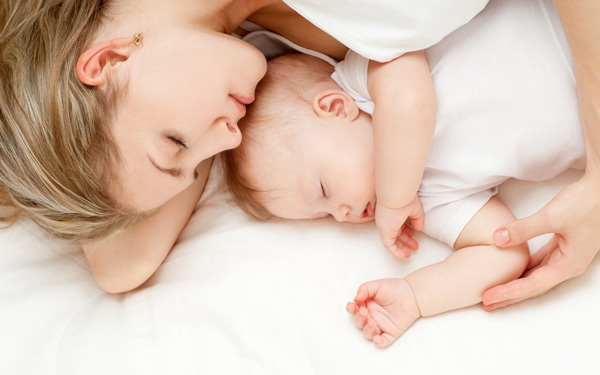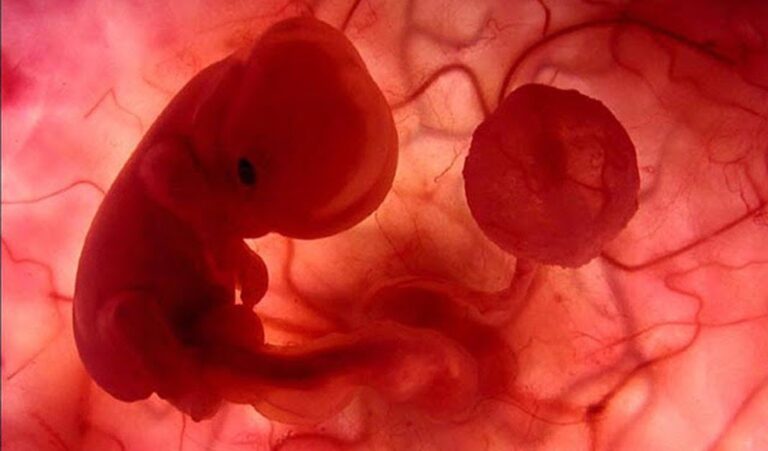
What is Egg Donation?
Egg donation has been practiced in many countries around the world for about 40 years and is the process of combining egg cells taken from healthy donors with sperm cells taken from the prospective father or, if desired, from a sperm bank, turning them into embryos and placing them in the uterus of the expectant mother.
The first egg donation procedure was performed in California, USA, and over time, it has been practiced in European countries such as South America, England, Spain, Italy, Czechia, Belgium, Greece, as well as many African, Asian countries and even Australia. In the Turkish Republic of Northern Cyprus, it was started to be applied in the early 2000s and Northern Cyprus has inspired other countries of the world with this success,
There are two types of donors in egg donation.
1. Known donor: In this application, the family can bring someone they know who meets the criteria set by TRNC laws. They undertake all the tests and examinations that need to be done. It is not recommended as it carries some social risks in the future.
2.Anonymous Donor: The donor is determined by the IVF center in accordance with the law and the family. It is the most preferred method because donor and recipient information is kept completely confidential and is safer.
Who can undergo egg donation?
1. Menopausal women
2. Women whose ovaries are not stimulated or under-stimulated despite medication
3.Women with low egg quality and reserve due to advanced age
4.Women with recurrent IVF failures and miscarriages
5.Women who have received treatments such as chemotherapy and radiotherapy for cancer
6.Women with genetic diseases (hemophilia, Duchenne’s muscular dystrophy, Huntington’s chorea)
7.Women who have had their ovaries surgically removed for any reason (cancer, endometriosis, infection, torsion, etc.),
8.Women with hereditary disorders such as Turner’s syndrome, gonadal dysgenesis
9.Women with genetically inherited diseases linked to the X gene
10.Gay couples

How to choose a donor?
Our center has a large donor portfolio and there are no waiting lists. We have donors from many countries (Turkey, Russia, Moldova, Ukraine, Bulgaria, Greece, Greece, Switzerland, England, Germany, Latvia, Belarus, Georgia, Armenia, Cameroon, Brazil, Nigeria, Iran, China, Turkmenistan, Uzbekistan, etc.) and ethnic backgrounds.
We take into account your physical characteristics, blood types and your special wishes (professional similarities, sports and artistic skills, habits, etc.) when selecting donors. If you wish, the closest candidate is determined by matching with the photos you send us.
Your wishes are our priority in donor selection at our center.
When you fill in the “donor selection form” that we will deliver to you, the closest candidates are determined with the support of artificial intelligence from a specially developed digital platform. Sometimes, depending on the situation, alternative candidates are presented to you and you make the choice yourself.
Donors are anonymous and their identities are never disclosed. The practice of showing photographs is not done in our center in accordance with the laws in line with the confidentiality of information.
While partial information about your donor is given to you, information about you is never given to your donor. He/she cannot even have information about your pregnancy result.
Information about your donor that is partially shared with you
Nationality
Height/weight
Eye color/skin color
Hair color/hair type
Age
Education
Hobbies in brief
Egg Donor (Egg Donation) Criteria
The requirements to become an egg donor are set by law, but IVF centers may also have their own specific criteria. The criteria for becoming a donor in our center have been meticulously determined and are as follows.
Being between 20 and 28 years old.
Being in good physical health
Not having any chronic disease (diabetes, blood pressure, cardiovascular disease, etc.)
Normal Body Mass Index (over 70 kg and under 50 kg are not suitable for donor criteria)
Height of 160 and above
No physical anomalies (short leg length, short arm length, flat feet, crossed eyes, narrow shoulders, 6 fingers)
Absence of any dominant features (toothy structure, prominent ears, big nose, slanted eyes, wide eyes, very thin lips, freckled skin, curly hair (curly hair is only given according to special request))
Not having depressive personality disorder, psychotic and neurotic depression, panic attacks and anxiety after psychological evaluation and not being under the use of any medication related to these conditions
Not having had a serious illness that puts your health at risk in the last 3 months (accident, ovarian torsion, surgery for any reason, abortion)
Having problems such as acne on the skin and not taking medication for it
Not drinking alcohol, smoking or using any harmful substances
At least high school graduation
No sensitivity and allergy to hormone injections to be used
Egg reserve and egg quality are suitable for this procedure
The anotomic structure is suitable for the procedure
Absence of genetically inherited diseases, cancer and mental illnesses in the family
To be aware that this process requires a serious sense of responsibility
To be able to show a reference to become a donor at our center
To declare in writing that he/she donates the eggs voluntarily without any pressure.
To provide us with all the information about himself/herself in a transparent manner and to declare its accuracy in writing
To be aware of and consent to all agreements to be made with it.
Tests Requested from the Donor
HBsAg, HCV, HIV, syphilis, chlamydia, CMV (cytomegalovirus)
Karyotype analysis, sickle cell anemia, Thalassemia
RECOMBINE TEST (sma, fmf, cystic fibrosis screening.)
Aptt, pt, blood count, blood group.
FSH LH E2 PROGESTERONE AMH HCG PROLACTIN
T3 T4 TSH
GLUKOZ HbA1C
USG (Assessment of egg reserve by ultrasonography)
Some of these tests are carried out in European standards and accredited laboratories in our country and some are carried out abroad.

Tests Required for Egg Donation
Tests Requested from the Expectant Mother:
E2, Progesterone (2nd or 3rd day of bleeding for menstruating women)
TSH, T3, T4 and prolactin (Fasting/morning)
Complete Blood Count
Fasting Blood Glucose, HbA1C (on an empty stomach)
Urea, SGOT, SGPT
Vit B12 and Vit D
Blood Type
HBsAg, Anti-HCV, HIV, VDRL
Vaginal USG
10.Uterine film (HSG – depending on the situation)
Information requested from the expectant mother:
Date of last menstrual period (first day)
Photographs preferably in your 20s (without glasses, make-up or filters) to identify the donor according to your physical characteristics
3.The time interval for which treatment is planned.
4.Whether there is any drug allergy
5. Providing us with complete information that may affect the treatment process
Tests Requested from the Prospective Father:
HBsAg, , Anti-HCV, HIV, VDRL
Blood type
Blood count
FSH, LH (according to condition)
Spermiogram (should be done after 3 -5 days of sexual abstinence)
Karyotype (according to the situation)
Treatment Process of Egg Donation
After completing the preliminary preparation stage, your preparation process for treatment begins. The duration of treatment varies from person to person and is between 12-15 days on average. In order to start treatment simultaneously with your donor, your donor will menstruate at the same time as you. If you are not menstruating, your treatment will be started at a time that your doctor/physician deems appropriate and simultaneously with your donor.
If you wish, we can also create your embryos before you start treatment. This will shorten your stay in Cyprus and give you a financial advantage. In addition, since you will have the opportunity to evaluate the quality of your embryos in advance, drug treatment will be started according to the situation.
You will have an extremely easy, effortless treatment process. With the estrogen hormone (estrofem) you will take orally, the uterus is thickened and made suitable for embryo transfer. Your doctor / doctor will determine the type of treatment, duration and dose of your medication. When your treatment is completed, the day of the procedure (arrival and departure day to Cyprus) will be notified to you by our team.
Treatment Process of Egg Donation in Cyprus
MODULE 1 (Fresh/Fresh transfer) After the preliminary preparation processes of the expectant mother and the donor prepared accordingly are completed in a synchronized manner, the treatment day is determined and the 1-week treatment process in Cyprus is organized.
Day 0
Since it will be convenient for you to come to Cyprus 1 day before your donor’s egg collection procedure, your travel is planned with the organization carried out by our transportation team. At the end of your journey, which starts under the control of our team, you will be welcomed with our private vehicle when you land at Cyprus Ercan Airport. After your transfer to the hotel of your choice in Kyrenia or Nicosia, you can spend your day resting. During your journey in Cyprus, you will notice that the traffic is on the left lane and the steering wheel is on the right side. For this reason, crossing rules are different and you need to be careful when crossing the street.
Day 1
Your donor’s eggs, specially prepared for you, are collected early in the day. Due to the importance we attach to information security, all procedures are carried out in strict confidentiality and it is never possible to meet your donor in the clinic. The sperm sample and the eggs are combined in our laboratory by our expert embryologists. After a consultation with our doctor, you will be examined according to the situation. Our specialist nurses will start you on additional medications for the remainder of your treatment. If your treatment includes an injection procedure, our nurses will arrange for it to be done at your hotel.
Day 2
The egg and sperm cells are combined in the laboratory by microinjection and it is checked whether they are fertilized or not, or if so, how many of them are fertilized. We call the cell formed from this combination an “embryo”. Your phone should be on during the day as you will be informed by our embryologists after the controls.
Day 3
Day 2 of your embryos. While you enjoy your vacation in the unique nature and beautiful sea of Cyprus, your embryos are safely monitored by our expert embryologists. In some special cases, transfer can be planned on the 3rd day of embryos. In this case, you will be informed by our nurses about your transfer time the next day and the issues you should pay attention to beforehand.
Day 4
Your embryos will be transferred on the 3rd day and their quality and number will be evaluated. In some special cases, transfer can be planned on the 3rd day of embryos. If you do not have a transfer, you do not need to come to the hospital, you can enjoy your vacation or rest. Again, you will be informed by our embryologists.
Day 5
It is the 4th day of your embryos and you do not need to come to the clinic again. You will be informed by our nurses during the day about your transfer time and the things you need to pay attention to before the transfer.
Day 6
Transfer day To achieve high success and reduce the risk of multiple pregnancy or increase the chance of multiple pregnancy, embryo transfer is usually done on day 5. We call this blastocyst embryo transfer. On the day of transfer, your emotions such as excitement and anxiety may peak. Our team is always with you in this process. In order for the embryo transfer to take place more easily, you need to be urinating and for this reason, you are asked to drink about 1 liter of water 1 hour before the transfer. After the pre-transfer preparations are completed, you will be informed about your embryos and your transfer process, which will take 10 minutes in total, will be completed. After 30 minutes of bed rest, you will be informed about your treatment and post-transfer considerations.
If you have remaining embryos, freezing is applied after the information. In this way, if there is any negative situation, you will have the chance to try again at a lower cost, and in case of pregnancy, you will have the advantage of having the same genetics as there may be a sibling request in the future.
Day 7
Now it’s time to return, hoping that your transaction went well. Our private car will pick you up from your hotel and transfer you to the airport in comfort.
The Process After Egg Donation Treatment
We hear so many times that 12 days is worth 12 years. We are as excited as you are and we sincerely hope that this process will be successful. If your pregnancy test is positive, we recommend that you make an ultrasound appointment after 10 days. Depending on the result, you may sometimes be asked to repeat your pregnancy test after 2 days. If your pregnancy test is negative, the medication will be discontinued and a repeat test may sometimes be requested.
As Cyprus Fertility Center team, we wish you good luck.
MODULE 2 (Freeze/Frozen embryo transfer)
In this treatment model, embryos are created in advance, evaluated according to the results and treatment is planned.
After the donor candidate is identified, treatment is started. As a result of the controls, the egg collection day is decided. On the day of egg collection, the father-to-be is ensured to be at the clinic at the desired time interval and to give sperm. In terms of time and cost, day visits are generally preferred.
The eggs collected from the donor and the sperm cells taken from the father-to-be are subjected to microinjection after the necessary sorting. Fertilization is checked the next day, followed and evaluated in the following days, and the embryo is frozen on the 5th day (blast stage) according to its development and quality. Afterwards, preparations for transfer are started according to the menstrual cycle of the expectant mother.
If the embryo development is not at the desired level, the procedure is repeated with another suitable donor egg, taking into account the sperm status, and the family is exempted from the costs incurred in this process.
Although both types of treatment have their advantages, the choice is made according to the workload, financial situation and expectations of the expectant parents.

Tests and Examinations Requested for Expectant Mothers 45 Years of Age and Older
A certificate of good health from a cardiologist. (echo and ecg can be taken)
A certificate of good health from an internist.
Urea, creatinine,
Uric acid, ALT, AST,.
TSH, T3, T4 and prolactin (Fasting/morning)
Complete Blood Count
Fasting Blood Glucose, HbA1C (on an empty stomach)
Urea, SGOT, SGPT
Vit B12 and Vit D
Blood Type
HBsAg, Anti-HCV, HIV, VDRL
Vaginal USG
Uterine X-ray (HSG – depending on the situation)
Smear test (if not done within 2 years)-preferably
Mammography -preferably
What is the Treatment Process for Over 55?
Becoming a mother at an advanced age has created controversy in some societies and despite all the resistance, a woman’s desire to become a mother could not be prevented. Because a woman’s desire to become a mother depends on her genes and therefore she tries to achieve her goal and dream with this feeling that cannot be suppressed regardless of her age.
Many scientific committees have taken the view that women’s health is more important and have ignored women’s desire to become mothers. However, it is precisely that desire that binds a woman to life. It is that dream.
Every woman has the right to be a mother. Here, age has no medical significance in terms of pregnancy and childbirth, but there are a number of risks that will affect her health and even her life.
Many women over the age of 55, who have examples in the world, have given birth to healthy babies without their health deteriorating and have achieved their dreams.
The Turkish Republic of Northern Cyprus ranks first in the world lists with births at the age of 55 and over.
As Cyprus Fertility Center, we support every woman’s right to become a mother and her struggle for this cause.
For this reason, we stand by the expectant mothers in this procedure, which is applied in our country with the condition of entering the ethics committee.
Tests and Examinations Required for Ethics Committee:
A report from a cardiologist that you are healthy. (echo and ecg can be taken) -It is mandatory to be performed in the clinic.
A report from an internal medicine specialist stating that the patient is healthy. This must be done in Cyprus.
Psychiatry Report (In the specialist determined by the Ministry of Health, you go according to the appointment given by the ministry. Usually, an appointment is made 2 days before entering the ethics committee) It is mandatory in Cyprus.
Urea, creatinine,
Uric acid, ALT, AST,.
TSH, T3, T4 and prolactin (Fasting/morning)
Complete Blood Count
Fasting Blood Glucose, HbA1C (on an empty stomach)
Urea, SGOT, SGPT
Vit B12 and Vit D
Blood Type
HBsAg, Anti-HCV, HIV, VDRL
Vaginal USG and a report from an obstetrician-gynecologist stating that you can give birth (It is mandatory in Cyprus)
Uterine film (HSG – depending on the situation)
Smear test – to be brought on arrival
Mammography – mandatory in Cyprus.
Abdominal Usg (It is mandatory in Cyprus)
Criminal record for the prospective mother and father
Bank account statements
Real estate, land deeds registered on them
Vehicle licenses registered to them
Payslip
Breakdown of income generating sources (rent, etc.)
Population registration sample
Never having had a child before
signed in the presence of a notary public that they agree to the procedure.
Spermiogram for the father-to-be
In Northern Cyprus, the ethics committee council usually meets every 2 months and the quota is limited and it is absolutely necessary to attend the appointment.
Most of the tests and examinations must be done in Cyprus and are completed within 2 days. The time spent in Cyprus for the preparation of the ethics committee is between 5-7 days and the result of the committee is announced within 2-3 days.

